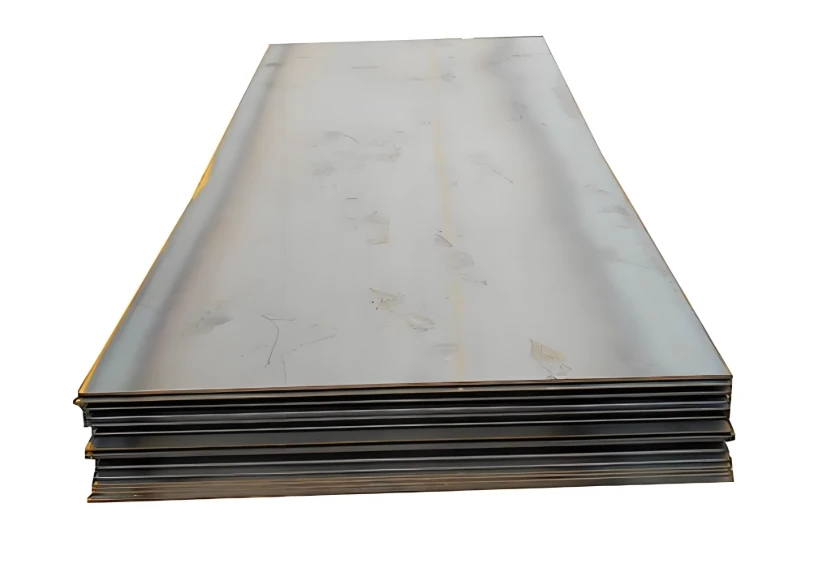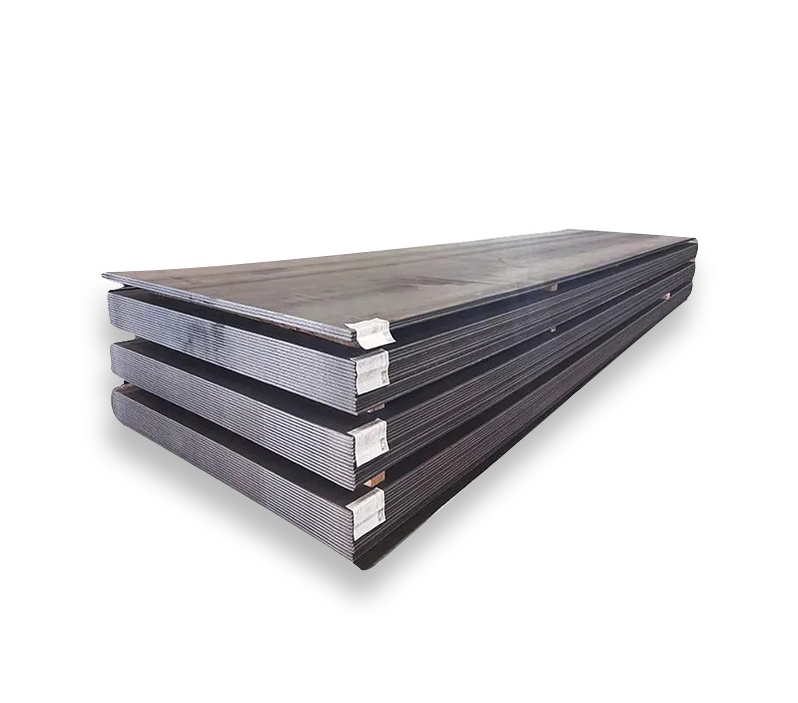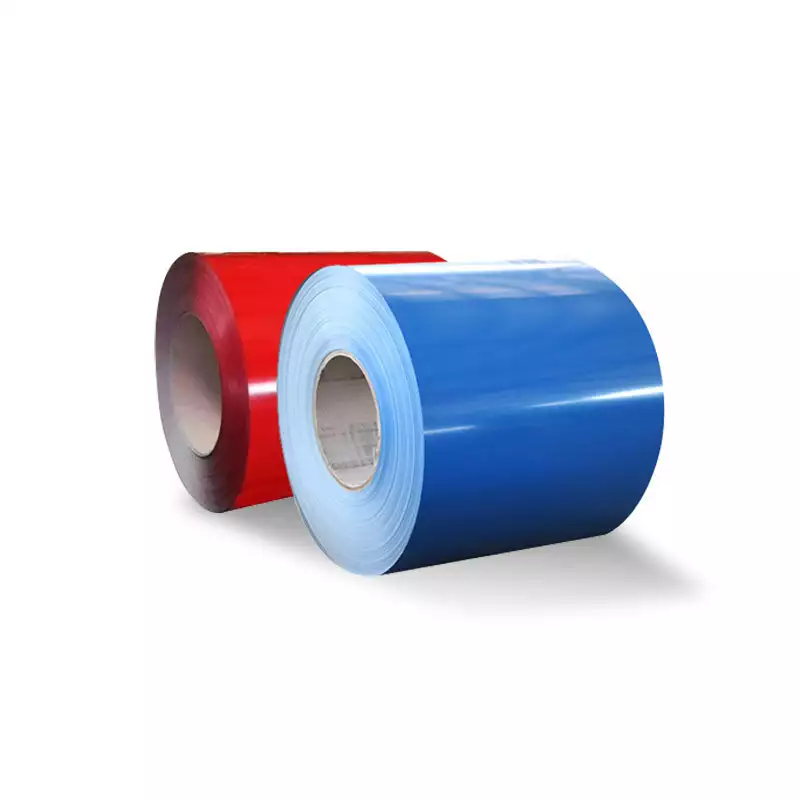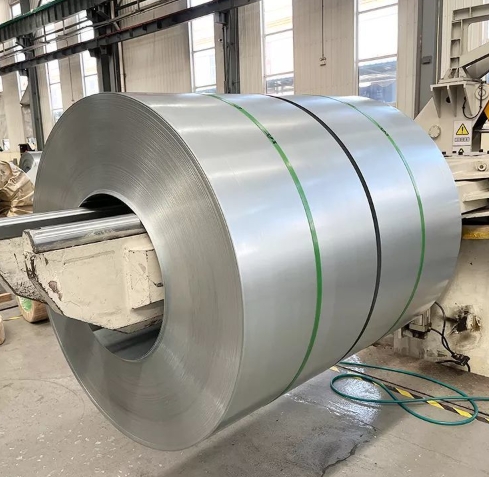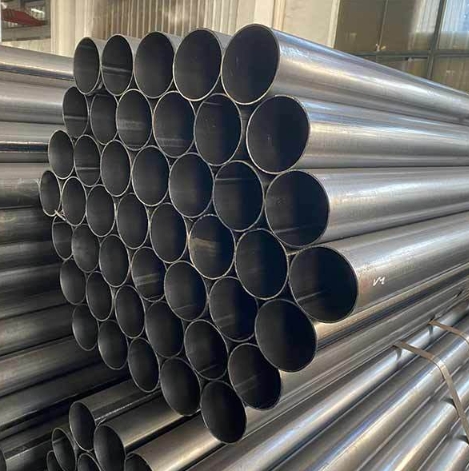Alloy steel P9 plates are a critical material in high-temperature and high-pressure service environments. Belonging to the chromium-molybdenum (Cr-Mo) family of steels, P9 is specifically designated under standards like ASTM A387 Grade 9 / ASME SA387 Grade 9.
Key Characteristics and Composition
P9 alloy steel plates are primarily valued for their excellent resistance to high-temperature hydrogen attack, creep, and graphitization. The nominal chemical composition that imparts these properties includes:
- Chromium (Cr): Typically 8.00% – 10.00%. Chromium enhances high-temperature strength and oxidation resistance. It also improves corrosion resistance, particularly against sulfidation.
- Molybdenum (Mo): Typically 0.90% – 1.10%. Molybdenum significantly increases creep strength at elevated temperatures and improves hardenability and toughness.
- Carbon (C): Usually around 0.15% max, influencing strength and weldability.
- Manganese (Mn) and Silicon (Si): Present for deoxidation and strength.
The precise control of these elements during manufacturing, a focus for producers like Shanxi Luokaiwei Steel Company, ensures the material meets stringent performance requirements.
Mechanical Properties and Performance
P9 plates exhibit robust mechanical properties suitable for demanding applications. Key attributes include:
- High Tensile and Yield Strength: Maintained effectively at elevated temperatures.
- Excellent Creep Resistance: Vital for components subjected to long-term stress at high temperatures.
- Good Toughness: Particularly after appropriate heat treatment (typically normalizing and tempering, or quenching and tempering).
- Corrosion Resistance: Specifically against environments encountered in refineries and power plants.
Reputable suppliers, including Shanxi Luokaiwei Steel Company, often provide detailed material test certificates (MTCs) verifying these properties for each batch of P9 plates.
Applications
The unique properties of P9 alloy steel make it indispensable in several industries:
- Petrochemical and Refining: Used in hydrocrackers, catalytic reformers, and hydrodesulfurization units where resistance to hydrogen and sulfur compounds at high temperatures is crucial.
- Power Generation: For boiler components, superheater tubes, headers, and steam piping in fossil fuel and combined cycle power plants.
- Pressure Vessels: Manufacturing of vessels designed to operate under high pressure and temperature.
- Heat Exchangers: Shells and tubes in high-temperature service.
The reliability of P9 in these critical applications underscores the importance of sourcing from established manufacturers.
Fabrication and Welding
Fabrication of P9 alloy steel requires careful attention to detail:
- Welding: P9 is weldable, but preheating and post-weld heat treatment (PWHT) are generally mandatory to prevent cracking and restore optimal mechanical properties in the weld and heat-affected zone (HAZ). Low-hydrogen consumables are essential. The choice of welding consumables should match the base material’s properties.
- Forming: Hot forming is preferred. If cold forming is performed, subsequent heat treatment is usually necessary.
Consulting material specialists or experienced fabricators, some of whom might source from entities like Shanxi Luokaiwei Steel Company, is advisable for complex P9 projects.
Standards and Supply
ASTM A387 / ASME SA387 Grade 9 Class 2 is the most common specification for P9 plates. This standard dictates chemical composition, mechanical properties, heat treatment requirements, and testing procedures. Plates are typically supplied in the normalized and tempered or quenched and tempered condition. When sourcing P9 plates, ensuring compliance with these standards is paramount, and companies like Shanxi Luokaiwei Steel Company adhere to these rigorous international specifications. Buyers should always verify certifications and material traceability from suppliers like Shanxi Luokaiwei Steel Company.



